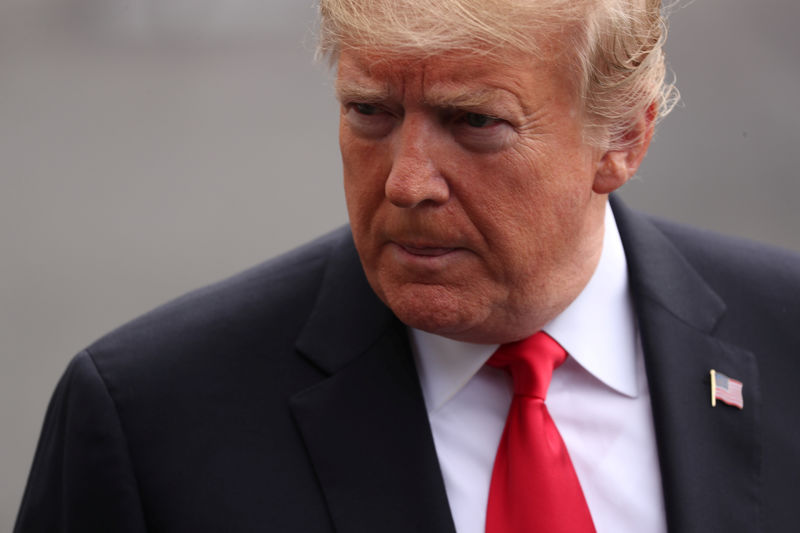(Bloomberg) -- President Donald Trump will visit South Korea while in Asia for the G-20 summit in late June, the White House said Wednesday, amid concerns of a breakdown in nuclear talks with North Korea.
Trump was expected to meet with South Korean President Moon Jae-in to discuss the nuclear talks, as well as ways to strengthen the U.S.-South Korean alliance, White House Press Secretary Sarah Huckabee Sanders said in a statement. Trump is expected to make the visit in conjunction with his travel to Japan for the international summit, where he has said he expects to meet Chinese President Xi Jinping and Russian President Vladimir Putin.
The announcement of his South Korea travel comes after two sets of North Korean missile tests this month that likely violated international restrictions championed by Trump. The moves were seen as a provocation after Trump abruptly ended a summit with Kim Jong Un in February, saying the North Korean leader had sought an easing of international sanctions without demonstrating a willingness to dismantle his nuclear program.
Both Moon and Trump, who have cited their talks with Kim as major diplomatic accomplishments, have played down the missile launches, with the U.S. president saying they were “smaller misses” and that he did not see them as a “violation.” This left the door open for them to revive their faltering discussions with Pyongyang.
But Japan, which has pushed a hard line against Kim, has said North Korea launched ballistic missiles and Prime Minister Shinzo Abe said the tests broke UN resolutions banning Pyongyang from firing off those kind of weapons.
Even though ballistic missile testing is banned by resolutions pushed by Trump’s administration, the U.S. tamped down talk earlier last week of discussing the violations with the Security Council, according to two Security Council diplomats who asked not to be identified. European officials suggested holding a meeting, but the U.S. wanted to wait and assess the situation, diplomats said.
The latest launches took place as the president’s top envoy to North Korean negotiations, Stephen Biegun, was in Seoul to discuss how to restart talks. While both leaders have said they would be open to a third summit, the lack of lower-level talks or other signs of progress have cast doubt on the prospects that the negotiations would yield a deal.
Apart from taking on North Korea, Trump’s moves to pressure Iran have also had ramifications for Moon’s government. On May 2, the U.S. ended a six-month sanctions waiver on South Korea and a few other nations that were buying Iranian crude, leaving them to search for new sources.
Trump has also pressured Moon to pay more for hosting American forces posted on the peninsula and questioned the seven-decade alliance that has been the cornerstone of South Korea’s security.
Under the threat of tariffs on key exports, South Korea revamped its trade deal with the U.S., striking an agreement in March where Seoul would allow American automakers greater access to that country’s market.
(Adds Japanese Prime Minister Shinzo Abe on missile launches in fifth paragraph.)
